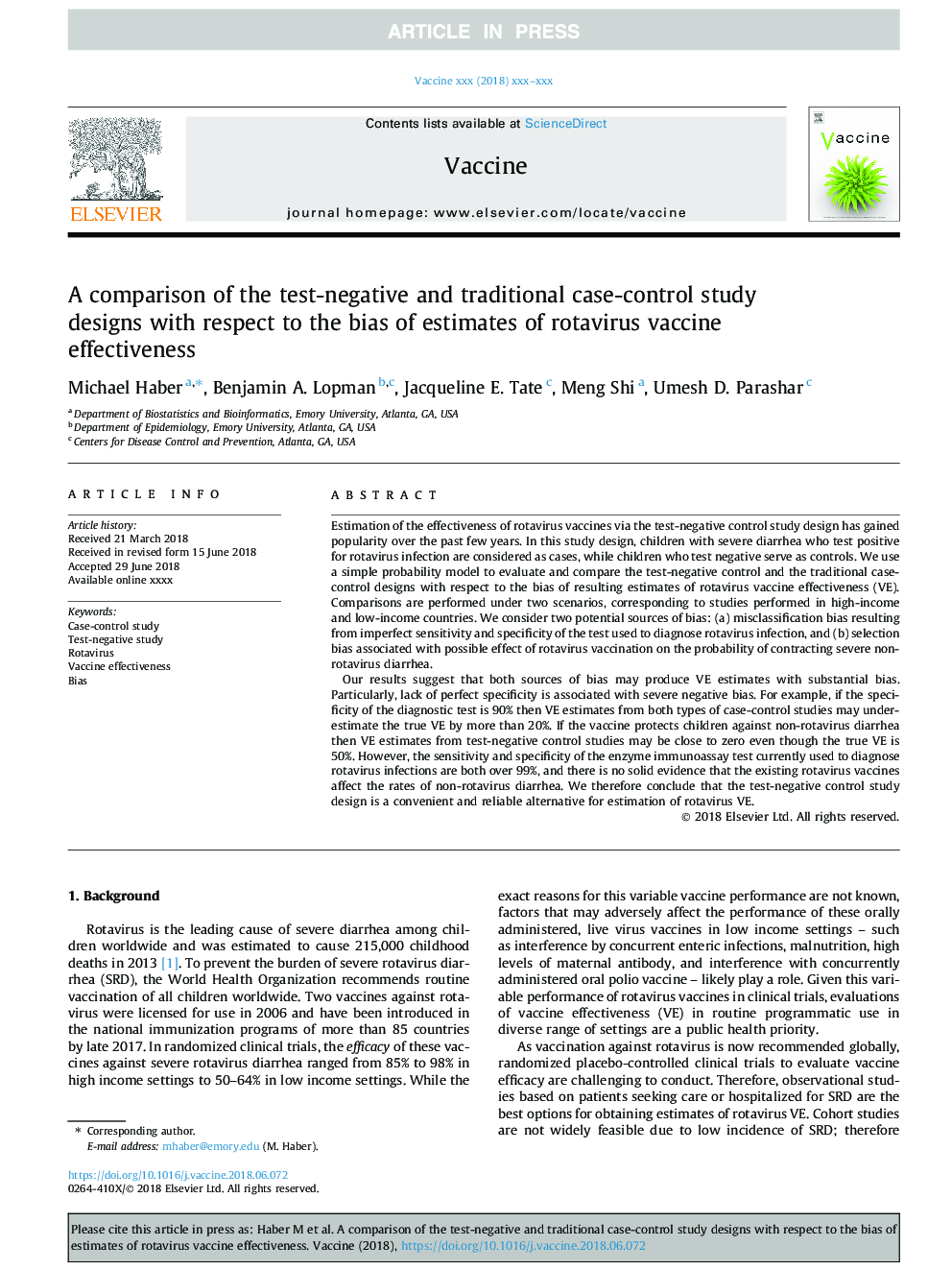| Article ID | Journal | Published Year | Pages | File Type |
|---|---|---|---|---|
| 8485400 | Vaccine | 2018 | 6 Pages |
Abstract
Our results suggest that both sources of bias may produce VE estimates with substantial bias. Particularly, lack of perfect specificity is associated with severe negative bias. For example, if the specificity of the diagnostic test is 90% then VE estimates from both types of case-control studies may under-estimate the true VE by more than 20%. If the vaccine protects children against non-rotavirus diarrhea then VE estimates from test-negative control studies may be close to zero even though the true VE is 50%. However, the sensitivity and specificity of the enzyme immunoassay test currently used to diagnose rotavirus infections are both over 99%, and there is no solid evidence that the existing rotavirus vaccines affect the rates of non-rotavirus diarrhea. We therefore conclude that the test-negative control study design is a convenient and reliable alternative for estimation of rotavirus VE.
Related Topics
Life Sciences
Immunology and Microbiology
Immunology
Authors
Michael Haber, Benjamin A. Lopman, Jacqueline E. Tate, Meng Shi, Umesh D. Parashar,
